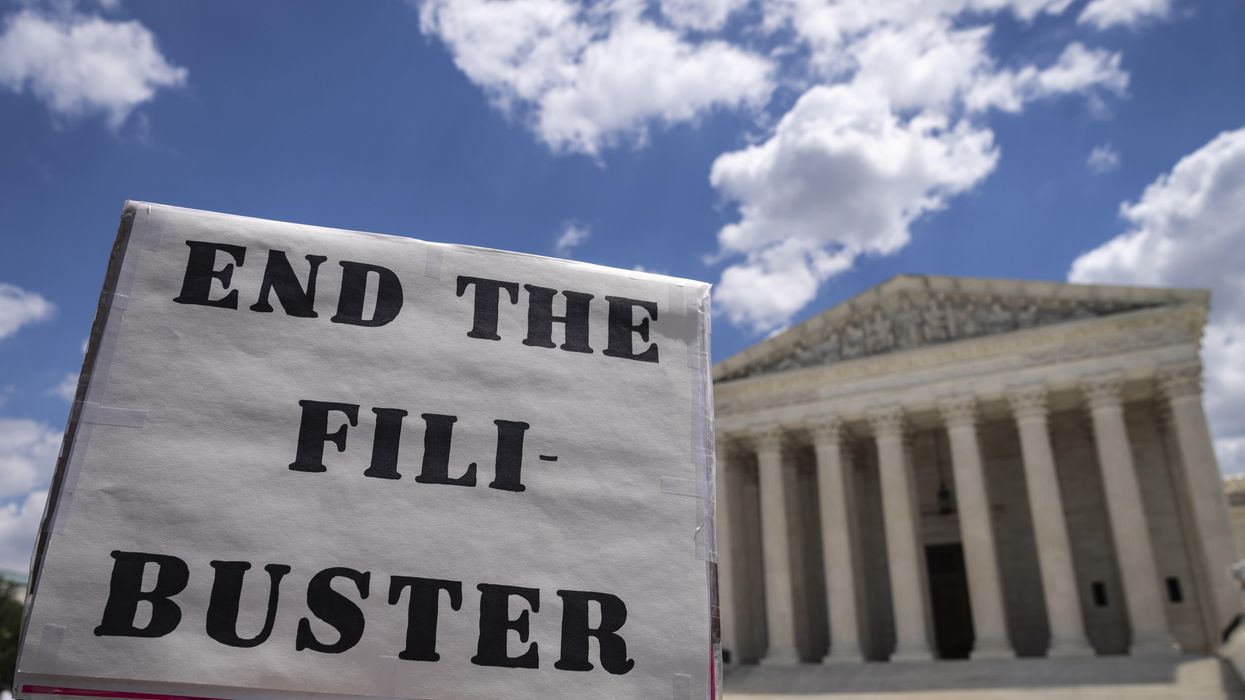Carlson, a high school science teacher in Royal City, Wash., is a volunteer for RepresentUs, a nonpartisan organization that advocates for a broad array of democracy reforms.
The conservative values I was raised with and maintain to this day lead me to the conclusion that the filibuster has to be reformed or abolished. The filibuster hinders our modern political discourse and has a corrosive impact on Congress.
The filibuster allows our politicians to act without integrity, because they can too easily blame their inability to pass legislation on the filibuster. They tell us time and again they wish they could enact the agenda they ran on, but can't because of the filibuster. Therefore, many people don't even really expect politicians to keep their campaign promises — and the politicians know it. If the filibuster were eliminated, our legislators would have no excuse for their inaction.
The filibuster also allows politicians to hide from accountability. A filibuster is not automatic on every bill. A specific politician has to call for it. Filibusterers in the Senate know that filibusters generate very little press coverage. The media talks at length about how senators choose to vote, but the matter of a non-vote does not generate or sustain anywhere near the level of coverage. When the Senate fails to vote on measures month after month after month, those who are responsible for this inaction are never held accountable — and they know it. This allows them to block popular and necessary legislation time and time again and pay no political price for doing so.
There is no reason to think the authors of the Constitution would have supported our modern filibuster and every reason to think they would have been appalled. It's true that the Framers wanted it to be hard to pass laws. George Washington asked Thomas Jefferson why he poured coffee into a saucer. "To cool it," answers Jefferson. Washington replied, "Even so, we would pour legislation into the senatorial saucer to cool it."
Note that the coffee is poured into a saucer to be cooled prior to drinking, not poured to be discarded. Filibustered legislation that arrives "hot" from the House simply dies. The For the People Act arrived at the Senate as a "hot" piece of legislation. The bill was then "cooled" using the filibuster, reworked and reintroduced as the Freedom to Vote Act. But this new legislation was also filibustered, despite being rewritten to incorporate Republican Party ideas, such as a voter ID standard. As long as the filibuster remains intact, politicians will use it to prevent anything from being done that they perceive as damaging to partisan interests, regardless of the benefit to America.
Defenders of the filibuster say that it encourages bipartisanship. The evidence, however, points in the opposite direction. The last decade has seen an unprecedented surge in the number of filibusters, along with increased partisan polarization. While this doesn't necessarily mean the filibuster causes partisanship, it shows that it certainly doesn't help. If a minority party knows that legislation will pass, they will be incentivized to work with the majority party to shape the legislation as much to their liking as possible. Under the filibuster, no such incentive exists. Indeed, the incentive runs the other way, as the filibuster will protect one party's interests while simultaneously shielding politicians from being held accountable for partisan behavior.
Conservatives should be loudly clamoring for fixing the filibuster. I encourage you to reach out to your senator and ask that they do what is necessary to allow legislation to be passed and our country to move forward.



















Marco Rubio is the only adult left in the room